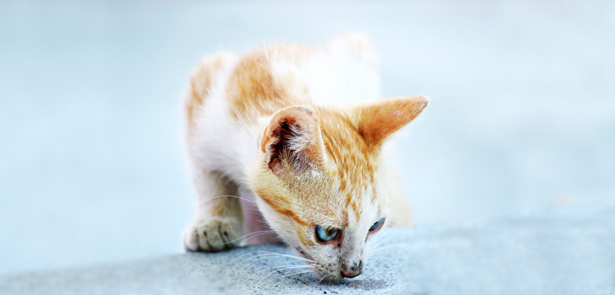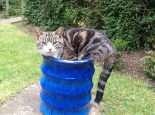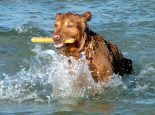Vet’s diary: that’s tough to swallow!

Peterborough vet Laura Frost finds that animals eat the silliest things...
During a rare coffee break this week, conversation got round to all the things that have been removed from an animal’s stomach over the years. Pets (particularly dogs) really do eat the strangest things. Corn on the cob middles and peach stones seem to be the most common, but that just scratches the surface.
Top stories:
The entire contents of a laundry basket
And I am talking the entire contents: three T-shirts, multiple socks and various delicate items. I don’t know who was blushing more at the discharge appointment.
A ball of wool (followed by ten apples swallowed whole)
Wool and string can be particularly dangerous if swallowed because then can unravel and migrate through the intestine causing it to bunch up leading to multiple blockages. Cats are particularly prone to swallowing, what we term a ‘linear foreign body’. My own cat gave me a scare the week after being spayed by eating a shoelace. Luckily, the first I knew about it was in a pile of vomit so surgery was avoided. In the dog mentioned above, the apples may have saved his life. He became unwell as the apples began to ferment in the stomach causing him to feel bloated. This alerted the owners, who were then able to bring him down for treatment before he developed a serious blockage. Whether the dog deserves any credit for this remains to be seen. Sufficient to say, that we were all put off cider for a little while after that operation.
An alien key-ring
Complete with big boogly eyes that stared at us from the x-ray!
A packet of contraceptive pills
Several phone calls to the veterinary poisons information service later, we found out that the worst that could happen was an upset tummy (as long as the wrapper passes). Phew.
A whole bag of dried food
It was late at night when this dog came to the surgery with a swollen abdomen. We were concerned that he might have a gastric torsion (twisted stomach) which is a really serious condition in large breed dogs. Usually, the stomach appears air filled and in a strange position on x-ray. However, this dog’s stomach was filled with hundreds of small round objects. While I was scratching my head trying to figure out what they could be, the dog was sick. Out came an unbelievable amount of dog biscuits. They just kept coming. The owner rang his girlfriend who promptly looked in the utility room to find an empty 5kg bag of food. Some dogs just don’t know when to stop eating.
On a more serious note, here’s a selection of common kitchen toxins to beware of:
Chocolate
A common human treat which many are well aware of as being dangerous to dogs. The toxic agent is theobromine which acts as a stimulant. Dark chocolate, as opposed to the milk or white variety, is particularly lethal in small doses. Chocolate toxicity can eventually lead to heart problems, seizures, and kidney failure if left untreated. !
Xylitol
This is an artificial sweetener found in low calorie or ‘sugar free’ foodstuffs such as chewing gum. It leads to a rapid, life threatening decrease in blood sugar called hypoglycaemia in dogs.
Mouldy foods
Old cheese or composted foods contain mycotoxins which cause tremors and fits. Beans, peanuts, and rice have a mould which releases aflatoxin also causing central nervous system disorders.
Grapes or raisins
They contain a chemical, as yet to be isolated, that can cause kidney failure in dogs. Their lethal dose varies with each individual dog, some only experiencing gastrointestinal disturbances.
Onions
Toxic compounds called organosulfoxides affect the red blood cells of both cats and dogs, but especially cats, altering haemoglobin found inside these cells and leading to dysfunctional oxygen uptake, destruction of red blood cells and anaemia. If you have a greedy pet (I speak from experience – my cat has been known to steal nachos, bacon, peas and hobnobs) make sure you don’t leave dangerous foods out for them.
 Laura Frost MRCVS MA VetMB is a vet at local veterinary practice Pengelly and Mizen.
Laura Frost MRCVS MA VetMB is a vet at local veterinary practice Pengelly and Mizen.
Pengelly and Mizen Veterinary Surgeons 89-93 Park Road, Peterborough PE1 2TR T: 01733 554953 Emergencies only: 01733 896000 www.pengellyandmizen.co.uk















